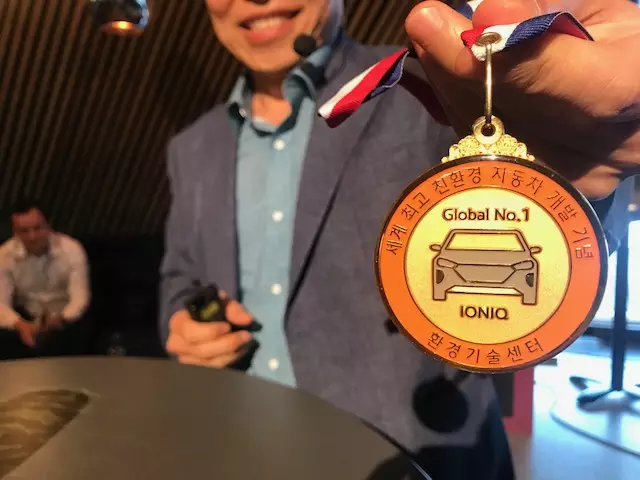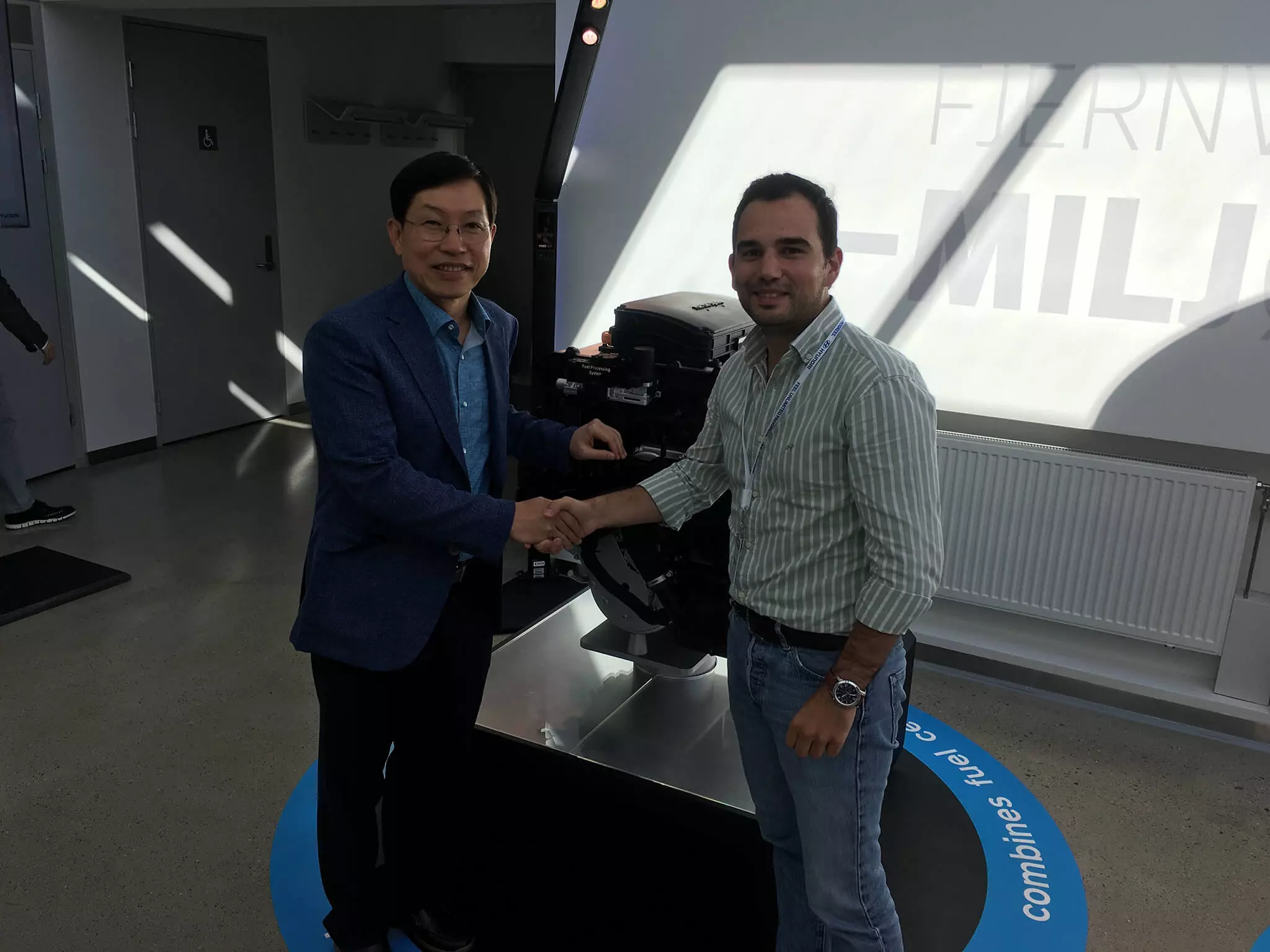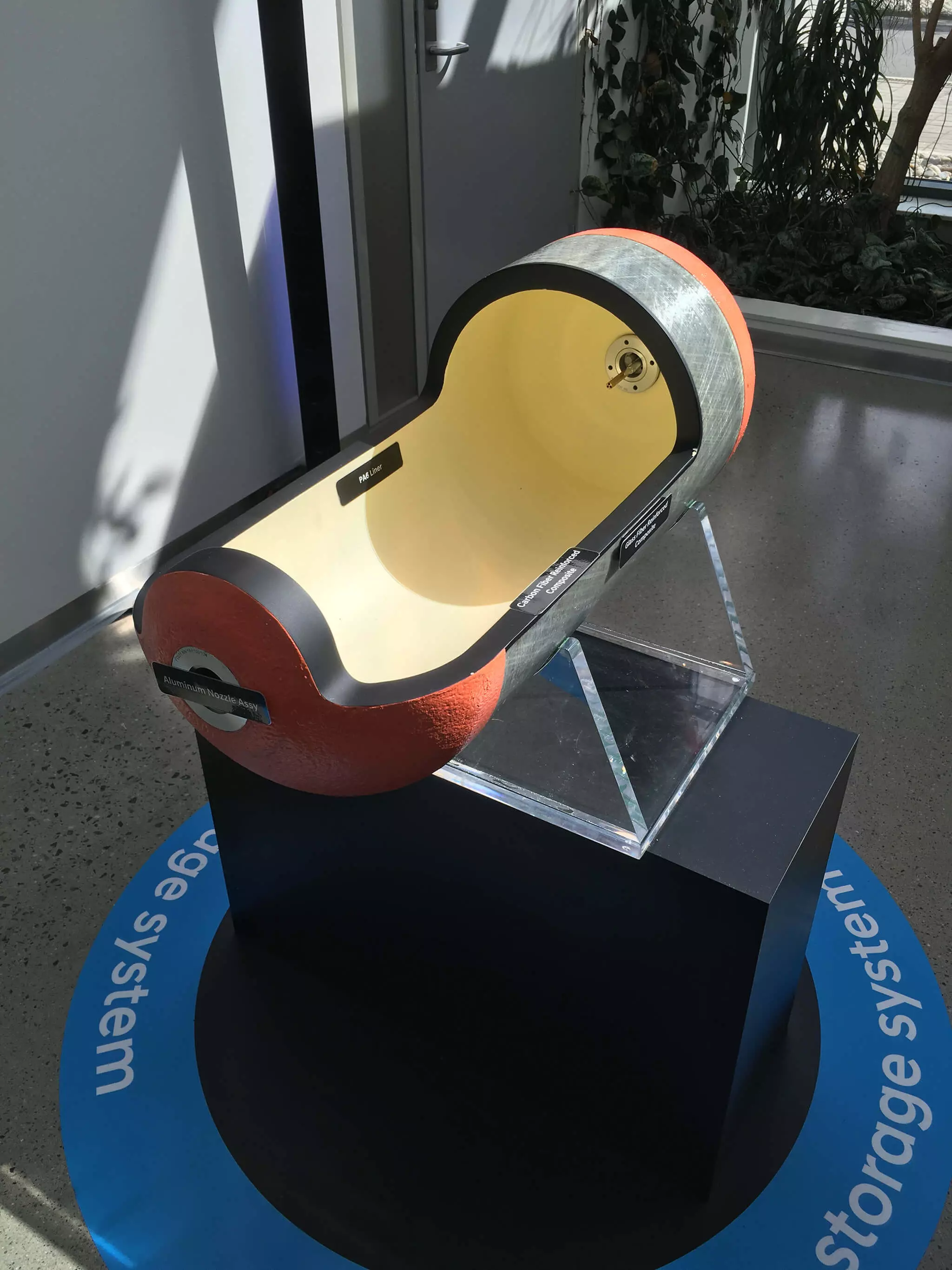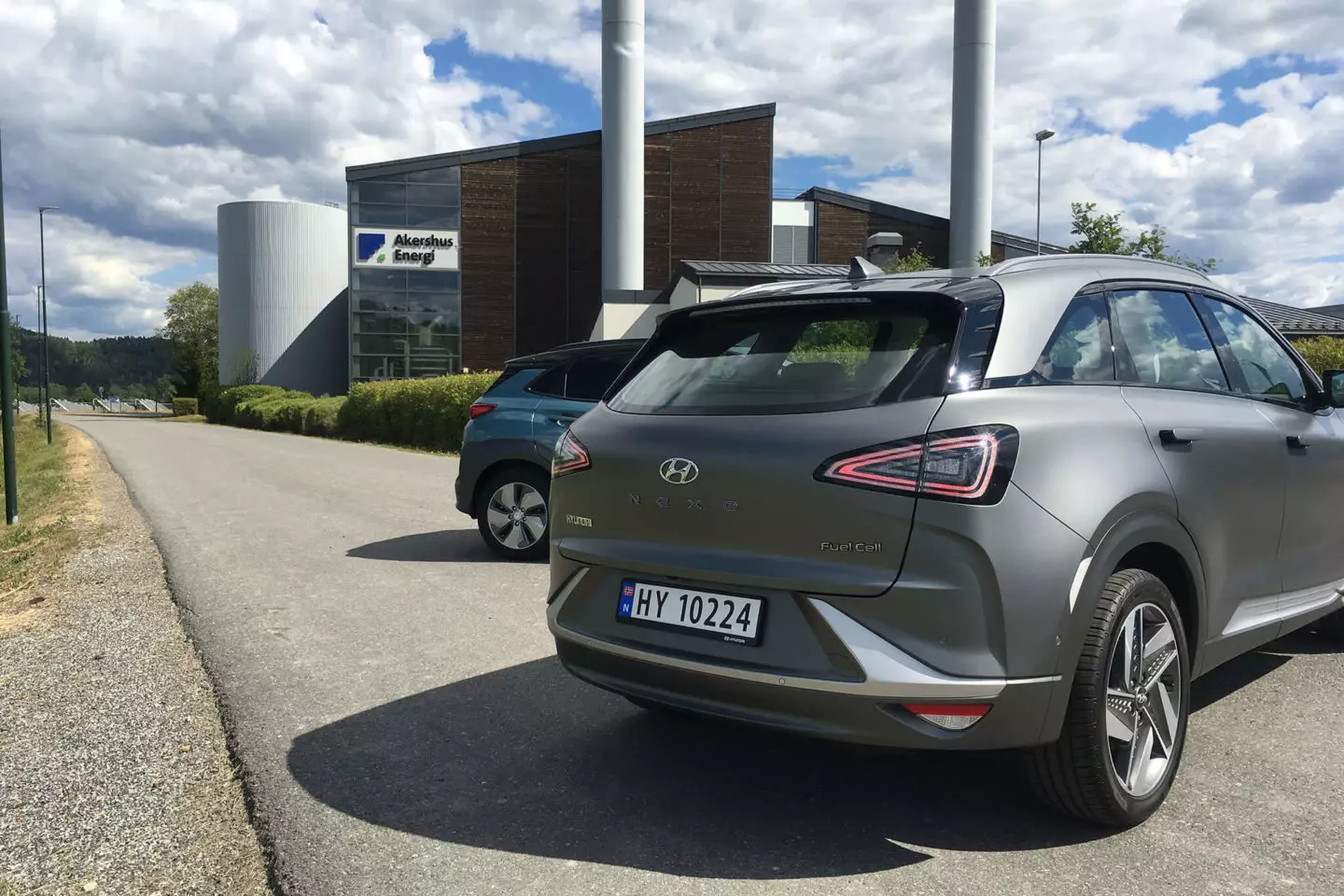Last week, we were in Oslo (Norway) to test Hyundai's latest range of electrified models: the Kauai Electric and the Nexus. A test that we will tell you about on the 25th of July, the date on which the embargo imposed on guest media ends.
For those who follow us, the Hyundai Kauai Electric which is a 100% electric SUV with more than 480 km of autonomy, and the Hyundai Nexus , which is also a 100% electric SUV, but the fuel cell (Fuel Cell), are not exactly a novelty. These are two models that have already been the subject of our scrutiny, including on video.
Therefore, we took advantage of our trip to Norway's capital, Oslo, to interview Lee Ki-Sang, President of Hyundai's Eco-Technology Development Centre. A unique opportunity to question one of those responsible for one of the world's biggest car brands about the future of the industry. We talked about team motivation, competition, the future of the car and in particular the future of electric cars as we know them today: with batteries.
And we started our interview with Lee Ki-Sang with a curiosity…
RA | We heard that you recently offered your engineers gold medals. Why?
The history of gold medals is curious. It all started in 2013, when we decided to start developing the Ioniq range. Our goal was clear: to surpass or equal Toyota, which is the world leader in hybrid technology.
The problem is that all the brands that tried to surpass Toyota in this domain failed. So how do you motivate a team to climb a mountain? Especially when this mountain has a name: Toyota Prius. So in 2013, when we brought our team together to develop the Hyundai Ioniq, no one was too confident that we were going to succeed. I realized that I had to motivate my team. We had to make it, we had to hit number 1. So much so that, internally, we dubbed the Hyundai Ioniq project the “Gold Medal Project”. If we succeeded, we would each receive a gold medal.
We achieved that goal by achieving the highest rating in the class in the EPA (United States Environmental Protection Agency) tests, just ahead of the Toyota Prius.
RA | And for the Hyundai Nexo, will there be medals too?
Let's do the same, it worked out so well that we'll do the same. Although this idea is not very popular with my wife.
RA | Why?
Because the medals are bought by me. My wife doesn't object, because in fact she has been a great support. She has witnessed, even if from a distance, the commitment and dedication that our team has put into overcoming all the difficulties of the Hyundai Nexo project.

RA | And what difficulties have these been?
I confess that our starting point was already very good in terms of efficiency. So when we started the process of developing the Hyundai Nexo, our main focus was on cost reduction. Without a substantial cost reduction, it is not possible to make this technology viable. Our main objective was that.

Secondly, we were not satisfied with the size of the system, we wanted to minimize the fuel cell to incorporate it into a model smaller than the Hyundai ix35 maximizing interior space. We also achieved that goal.
Finally, another important point was the system's durability. On the Hyundai ix35 we offered a warranty of 8 years or 100,000 km, with the Hyundai Nexo our goal was 10 years to reach the life of a combustion engine. And of course, again our goal was to beat the Toyota Mirai.
RA | And in your opinion, what does beating the Toyota Mirai mean?
It means achieving an efficiency of over 60%. We did it, so it looks like I'll have to have more medals produced again.
RA | How many medals will you have to earn, or rather, how many engineers are involved in Hyundai's Fuel Cell project?
I can't give you specific numbers, but I'm sure there are more than 200 engineers from different countries. There is a great commitment on our part to this technology.
RA | Note yourself. There are thousands of battery suppliers in the industry, but Fuel Cell is a technology that few brands have mastered...
Yes it's true. Besides us, only Toyota, Honda and Mercedes-Benz have been constantly betting on this technology. All are still at different stages of evolution.
RA | So why hand over your technology to a giant like the Volkswagen Group through Audi?
Again, for a cost reason. The Hyundai Nexo does not have a sufficient sales volume compared to the size of our value chain. The great advantage of this partnership is the economies of scale. The Volkswagen Group in general, and Audi in particular, will use our components for their future Fuel Cell models.
This is the main reason why we made this partnership.
RA | And what are the reasons for Hyundai to allocate so many resources to this technology, at a time when the charging time of electric cars is getting shorter and their autonomy longer and longer?
Battery technology is at its best, it's a fact. But your limitations will show up sooner or later. We believe that by 2025 the full potential of lithium-ion battery technology will be reached. And as for solid state batteries, despite the advantages they present, they will also suffer a setback due to the scarcity of raw materials.

Given this scenario, Fuel Cell technology is the one that offers greater sustainability for the future. Furthermore, the most used raw material in the fuel cell is platinum (Pt) and 98% of this material is reusable at the end of the fuel cell's life cycle.
In the case of batteries, what do we do with them after their life cycle? The truth is, they are also pollutants. When electric vehicles become widespread, the fate of the batteries will be a problem.
RA | How long do you think we'll have to wait for Fuel Cell technology to be the rule rather than the exception in the automotive industry?
In 2040 we believe that this technology will be massive. Until then, our mission is to create a sustainable business model for Fuel Cell technology. For now, electric cars will be the transitional solution and Hyundai is very well positioned in this field.
After the interview was over, it was time to try the Hyundai Nexo for the first time. But I still can't write about that first contact. They will have to wait until the next 25th of July here at Razão Automóvel.
Stay tuned and subscribe to our Youtube channel.

